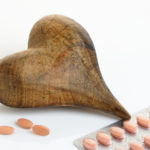By David Blyweiss, M.D.
Is your body burning to tell you something? If you suffer from frequent heartburn, it may be. In functional medicine, practitioners consider the health of your digestive system to be as crucial as the health of your brain. In fact, many chronic conditions start with poor digestion, sending out clues in the form of indigestion and heartburn. Ignoring these signs over time can lead to a more severe condition, such as acid reflux.
Scientists estimate that more than 15 million Americans suffer from acid reflux, also known as gastroesophageal reflux disease (GERD). If you experience burning from GERD, acid from the stomach flows up into the esophagus, causing discomfort, inflammation and sometimes scarring. Thanks to incessant advertising, many people go to their doctors looking for an antacid or proton pump inhibitor when they have acid reflux. But using these pills long-term could keep you from finding the real cause of your acid indigestion.
Open your arteries, improve blood flow for a new health miracle...
Did you know your circulatory system has over 60,000 miles of arteries, veins and other blood vessels, if stretched end to end?
But as you age, your blood vessels undergo changes, which may cause them to stiffen, thicken and get clogged.
GOOD NEWS! Doctors have now identified a “Miracle Molecule” inside your arteries that helps OPEN your arteries and IMPROVE blood flow.
It’s what Dr. Valentin Fuster calls it, "One of the most important discoveries in the history of cardiovascular medicine."To you, that means...
- Healthy blood pressure
- Sharper mind and memory
- Skyrocketing energy and muscular strength
- Increased pleasure and passion in the bedroom
- Improved circulation to every cell and organ in your body
Go here to discover a new natural way to significantly boost the levels of this miracle molecule in YOUR body NOW!
The problem of acid reflux begins when the gradient of pressure between the lower esophageal sphincter (the valve between the esophagus and the stomach) and the stomach is altered. Under normal circumstances, our muscles act with gravity to create pressure to push the food we eat downward from the esophagus into the stomach. With GERD, food and acid that should stay in down the stomach comes splashing back up. As a result, you can experience burning pain in your chest or upper abdomen, irritation in your throat, difficulty swallowing, nausea and even bad breath.
The World's Quickest Solution for Ending Prostate and Urinary Misery
This has recently been revealed to be one of the only real breakthroughs in prostate health.
The seeds of a strange fruit (sometimes called "Chinese Apples") hold powerful phytonutrients that are a revolution in prostate health.
In fact, UCLA and Veterans Administration research have now proved this to be true.
Not only that, but it may be the worlds quickest solution for ending prostate misery.
Simply stated, these phytonutrients represent a huge step beyond beta sitosterol, saw palmetto, and other phytosterols alone.
Simply click HERE if you want to have fast prostate relief...restful, uninterrupted sleep...no more constant "urges to go"...enhanced virility...and optimal prostate support for life.
Although acid reflux is common, it can be serious. Over time, regurgitation of acidic stomach contents can wear away the esophagus, eroding the delicate tissue, and causing inflammation and scarring. In extreme cases, it can ultimately make you more vulnerable to esophageal cancer.
Conventional Western medicine treats acid reflux on the premise that if we can stop or neutralize the hydrochloric acid (HCl) produced in our stomachs with antacids, proton pump inhibitors like Nexium and H2-receptor antagonists like Zantac, we can solve the problem. This approach can certainly help some people in the short-term. But it only addresses the symptoms, not the underlying cause. Used long-term, this strategy can also set you up for more problems down the road, preventing the absorption of both vitamin B12 (causing anemia and neuropathy) as well as calcium (causing frank deficiency and osteoporosis).
In my experience, most patients with acid reflux are suffering from too little acid, not too much. During healthy digestion, your stomach uses an acid cocktail made up of hydrochloric acid (HCl) and a powerful digestive enzyme called pepsinto break down food into the vital nutrients your body needs. Pepsin requires a highly acidic environment to do its job. When HCl is low—which can happen due to advancing age, a poor diet, infection or the overuse of antacids—it becomes increasingly difficult for your stomach to fully process your food and the reflux we feel is actually a biliary (bile) reflux. Adding 325 to 650 mg. of supplemental betaine HCI can provide your stomach with enough acid to fully process the foods you eat.
Along with HCI, I also recommend adopting the following for long-term prevention and treatment.
- Eat more frequently. Instead of three large meals a day, switch to eating five or six small meals.
- Chew your food thoroughly. The digestive enzyme amylase is present in human saliva, where it begins the chemical process of digestion. It signals the production of gastric juices in the stomach, which then triggers the production of pancreatic enzymes that go to work in the small intestines to further digest food. So, your grandmother was right in telling you to chew each mouthful of food twenty times (at least) before swallowing.
- Manage stress. Whether it’s through meditation, reading or getting more exercise, finding ways to cut back on stress will help your symptoms.
- Find your triggers. Keep a food diary to help you identify problem foods. Common triggers include chocolate, coffee, tea, soda, alcohol, dairy and wheat. Others include fatty foods, onions, tobacco, and acidic juices like orange and tomato. Simply avoiding these foods can often clear up the problem.
- Consider digestive support. You can help restore a natural acid balance and healthy digestion by taking digestive enzymes like papain or pancreatin along with a good probiotics supplement. Look for a multi-strain probiotic supplement that contains at least 50 Billion CFU (at time of expiration not manufacture) and take it daily with food.
- Try some licorice. A preliminary trial found that a special type of chewable licorice called DGL is just as effective as the acid-blocking drug cimetidine (Tagamet) for heartburn symptoms.
While these strategies aren’t a quick fix, over time they can safely help ease that incessant burning sensation and may even help repair tissue that has been damaged by GERD.
References:
Kaltenbach T. Are lifestyle measures effective in patients with gastroesophageal reflux disease? An evidence-based approach. Archives of Internal Medicine. 2006; 166: 965–971.
Locke GR. Risk factors associated with symptoms of gastroesophageal reflux. American Journal of Medicine. 1999;106:642–9.
Morgan AG. Comparison between cimetidine and Caved-S in the treatment of gastric ulceration, and subsequent maintenance therapy. Gut 1982;23:545–51






